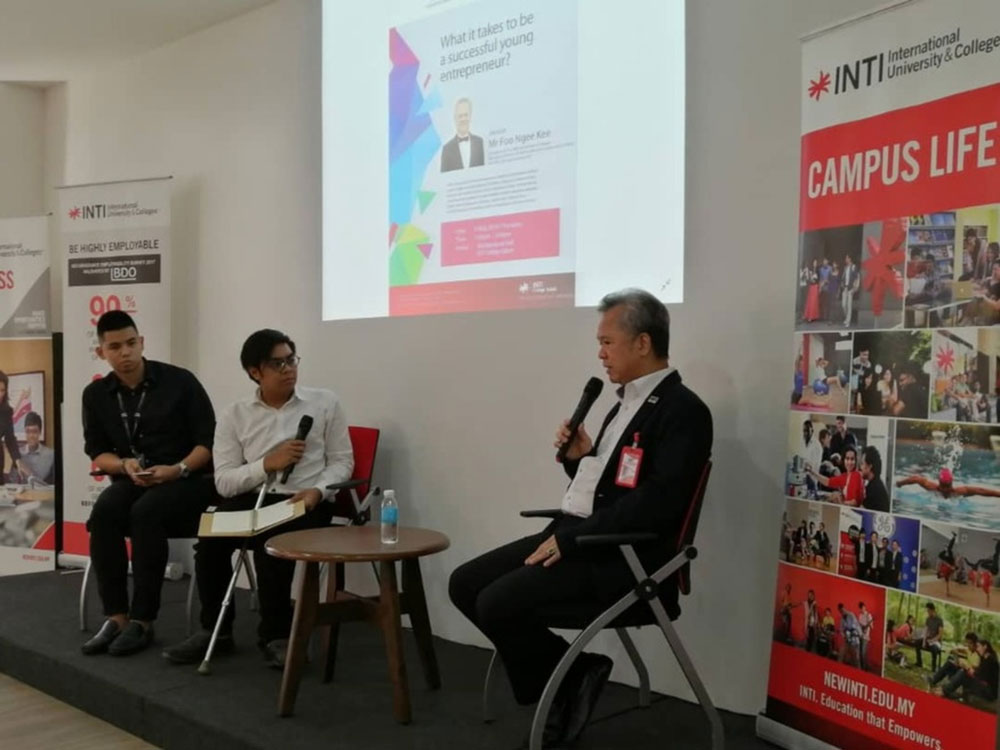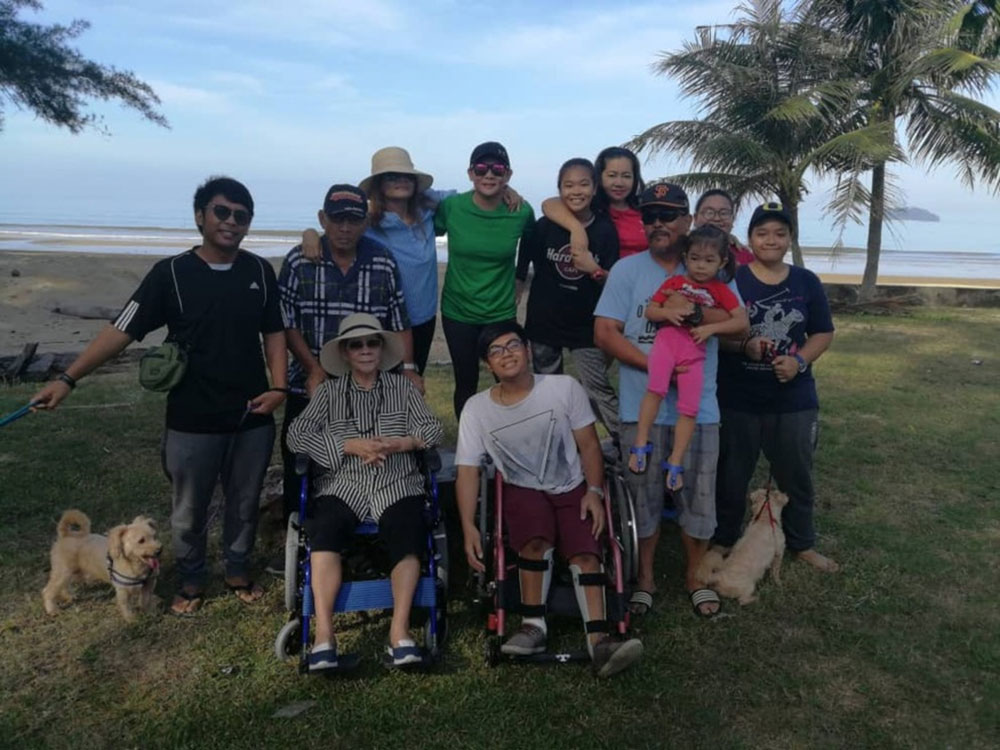Despite the many challenges Raffell Robert was presented with, the inspiring individual continues to beat the odds and demonstrate strength, courage, resilience and determination in all of his daily endeavours and interactions. The mature 22-year old shares his tales of his past experiences, future aspirations and academic successes, along with his living experiences as being differently-abled.
Faced with challenges from very early on, Raffell was diagnosed with spina bifida that would witness an impact on his mobility, daily functioning and quality of living.

Raffell (center), a hardworking and charismatic student, hosting one of INTI’s Leadership Series.
“Spina bifida occurs when the spine and spinal cord is not fully formed during pregnancy. My condition exposes me to higher risks of infections in the tissues surrounding my brain, poorer skin conditions and sleep quality, bowel and bladder malfunctions, and decreased mobility,” shared Raffell, a current Bachelors of Accounting and Finance student at INTI College Sabah (INTI).
Apart from being born differently, Raffell was also faced with a different set of challenges in his childhood and adolescence when it came to family support and education.
Born to a family of five, Raffell did not experience the full physical presence of his parents and was mostly raised by his grandparents, along with the help of his aunts and uncles.
“My siblings, Sarah and Raynaldo, along with my grandparents, aunts and uncles, played an important role in my life in helping me get to where I am today. With their assistance, I managed to complete my primary and secondary education, and eventually got myself into a university!” explained the devout and passionate Manchester United fan.

Raffell’s siblings, grandparents, aunts and uncles, played an important role in his life in helping him get to where he is today.
“My primary and high school experiences were a roller-coaster ride for me. I was more aware of my physical differences, especially during sports activities and I was very sad when I saw other children running in the fields and I could not,” he shared.
“Some children would treat me differently and that was hurtful too. Thankfully, I also had extremely nice friends who treated me with compassion, respect and dignity, so I like to remember that when thinking of school” expressed Raffell.
Despite the hurtful experiences, the avid video gamer was still determined to excel academically and focus on achieving his educational goals. His strong determination eventually paid off when he successfully enrolled into university, completed his pre-university programme and is presently about to complete his Accounting degree – a considerable feat for Raffell given his physical differences and life experiences.
The multifaceted student also has an innovative side after demonstrating it in INTI’s Design Thinking Competition and coming out the winner of the competition.
“My team and I developed a model that converts food waste into fertilisers. One of the most valuable takeaways for me from the competition was having the opportunity to work alongside and be mentored by an industry professional!” shared Raffell.
Roselyn Chua, Chief Executive of INTI College Sabah shared that INTI’s Design Thinking Competition encourages INTI students to develop innovative cutting-edge solutions to curb everyday problems.
“It encourages students to think analytically, hone ideation and creative thinking, along with developing solution-focused strategies, which we (INTI) believe are skills to thrive amongst the competition when students head out into the workforce,” shared Roselyn.
Currently pursuing the University of Hertfordshire Degree Programme at INTI College Sabah, Raffell shared that he hopes to eventually work in an auditing firm or be a professional accountant.
When asked about the one thing he would like to share publicly when it came to interacting with differently-abled people, Raffell had this to share, “There is more than meets the eye. While we may not share the same mobility functions as most people do, we have different strengths, potential and capabilities. We can contribute in different ways and offer different perspectives, so it is best not to judge a book by its cover.”